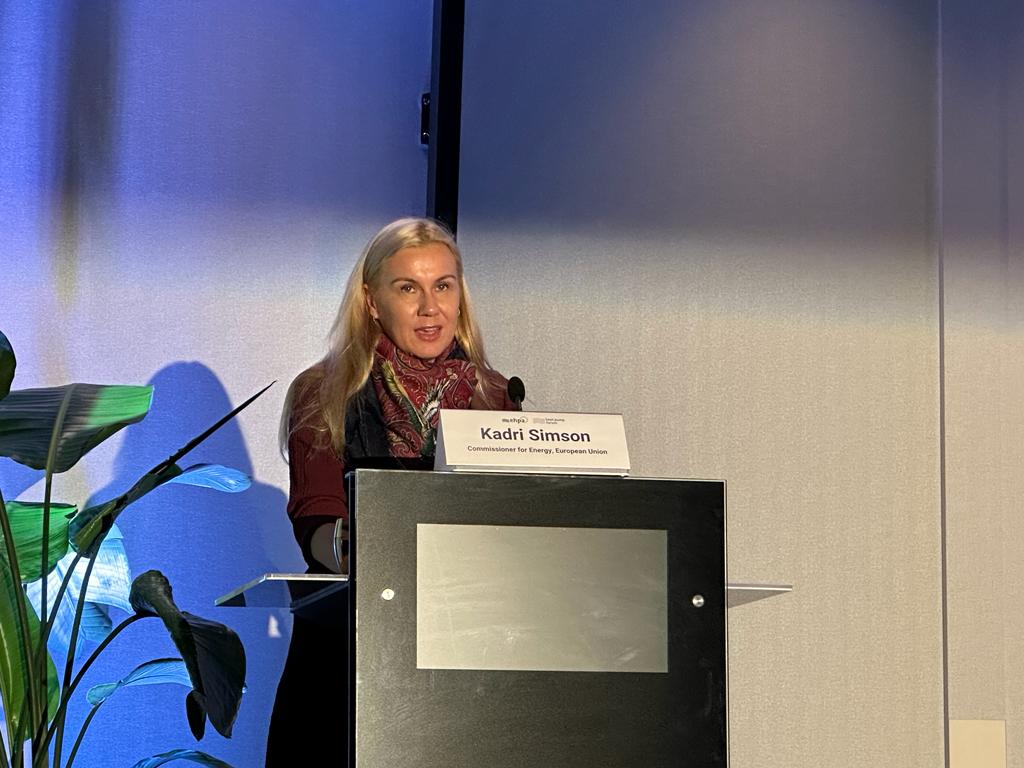At this week's EHPA Heat Pump Forum in Brussels, EU Energy Commissioner Kadri Simson delivered a keynote speech emphasizing the commission's commitment to promoting heating decarbonization. She discussed the commission's efforts to advancing the Energy Performance of Buildings Directive, which is currently undergoing consultation. Simson noted that this initiative, along with a series of measures implemented since the start of the Ukraine war, aims to reduce reliance on Russian gas.
“Policy developments will be critical to heat pump implementation and more accessible financing will be crucial,” she said. “We want the heat pump industry to stay in Europe.”
EHPA President Martin Forsen noted the EU's efforts to promote heat pump adoption. He pointed to the swift launch of REPowerEU shortly after the start of Russia-Ukraine hostilities, but expressed concern about the potential barriers to heat pump deployment in the United Kingdom and Germany. He said that rumors of scaling back and internal opposition within these governments are threatening their plans.
“We need brave decisions,” he said, noting that levies and taxes on electricity are currently much higher than those imposed on gas. “We need to have decent European energy price ratios for gas and electricity.”
The event has also shown that heat pump companies and utilities are now pursuing several business models to overcome one of the sector's biggest challenges – the need for high upfront investment.
Oliver Franz, VP European Associations at E.ON SE, noted the significance of capex. He said that utilities are grappling with the challenge of persuading customers to embrace a technology that remains unfamiliar to many homeowners and commercial businesses.
“And we don't have to forget there is a tradeoff between costs and comfort,” said Sonja Soar, COO and co-founder of smart energy company Kapacity.io. “And we don't have to forget that, sometimes, the level of comfort depends more on the dwelling.”
She emphasized the importance of savings and suggested that homeowners should be informed about the level of comfort they are willing to sacrifice to achieve greater savings.
“Customers all scared by capex,” said Andy Bradley, partner at energy consultant LCP Delta. “Providing heat pumps on a service-as-a-service basis may currently be a good solution to have more accessible financing.”
Aimee Clark, head of commercial for Octopus Energy Group, emphasized the importance of subsidies in this market phase. She said that the service-as-a-service model could be a good solution to partially compensate for the lack of high incentive levels.
During a panel discussion on financing, Csaba de Csiky, chairman and managing partner at EnerSave Capital, underscored the need for the heat pump industry to develop large project pipelines.
“Money is not the issue,” he said. “But investors are looking for big pipelines.”
For example, he mentioned that investors would readily finance real estate developers seeking to renovate large apartment buildings with decarbonized solutions.
“Think big, dream big,” he stated and also noted the difficulty of changing patterns in approaching heat pump technologies. “Some people simply can't get over boilers,” he concluded.
The event also focused on the need for innovation, research, and standardized industry solutions.
This content is protected by copyright and may not be reused. If you want to cooperate with us and would like to reuse some of our content, please contact: editors@pv-magazine.com.




1 comment
By submitting this form you agree to pv magazine using your data for the purposes of publishing your comment.
Your personal data will only be disclosed or otherwise transmitted to third parties for the purposes of spam filtering or if this is necessary for technical maintenance of the website. Any other transfer to third parties will not take place unless this is justified on the basis of applicable data protection regulations or if pv magazine is legally obliged to do so.
You may revoke this consent at any time with effect for the future, in which case your personal data will be deleted immediately. Otherwise, your data will be deleted if pv magazine has processed your request or the purpose of data storage is fulfilled.
Further information on data privacy can be found in our Data Protection Policy.